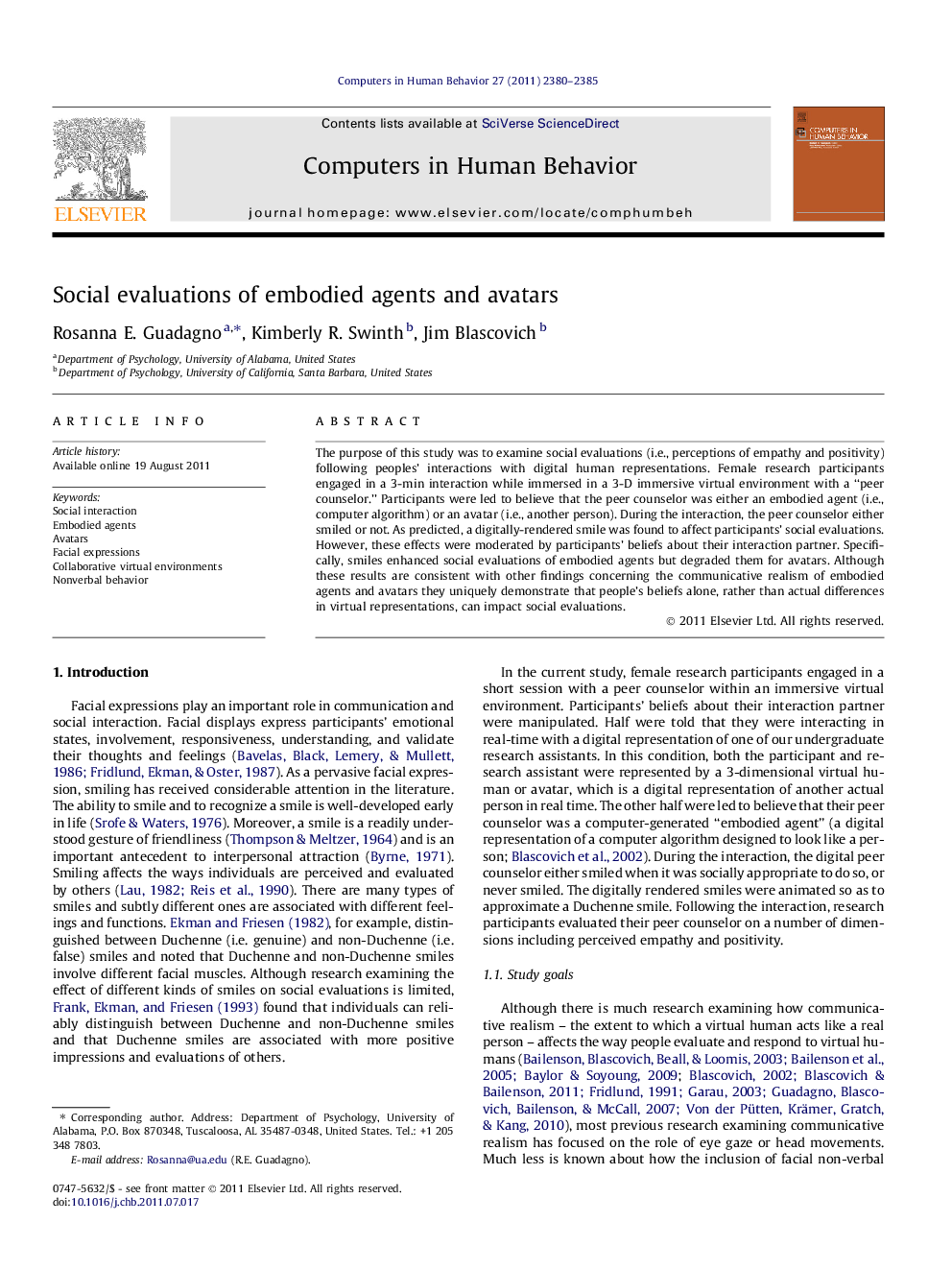| Article ID | Journal | Published Year | Pages | File Type |
|---|---|---|---|---|
| 351607 | Computers in Human Behavior | 2011 | 6 Pages |
The purpose of this study was to examine social evaluations (i.e., perceptions of empathy and positivity) following peoples’ interactions with digital human representations. Female research participants engaged in a 3-min interaction while immersed in a 3-D immersive virtual environment with a “peer counselor.” Participants were led to believe that the peer counselor was either an embodied agent (i.e., computer algorithm) or an avatar (i.e., another person). During the interaction, the peer counselor either smiled or not. As predicted, a digitally-rendered smile was found to affect participants’ social evaluations. However, these effects were moderated by participants’ beliefs about their interaction partner. Specifically, smiles enhanced social evaluations of embodied agents but degraded them for avatars. Although these results are consistent with other findings concerning the communicative realism of embodied agents and avatars they uniquely demonstrate that people’s beliefs alone, rather than actual differences in virtual representations, can impact social evaluations.
► We examined social evaluations of women’s interactions with digital humans. ► Women interacted with a virtual “peer counselor” who smiled or not. ► Smiling affected social evaluations that varied by participants’ beliefs. ► Smiling enhanced social evaluations for agents but degraded them for avatars. ► People’s beliefs alone, not actual differences, can impact social evaluations.
